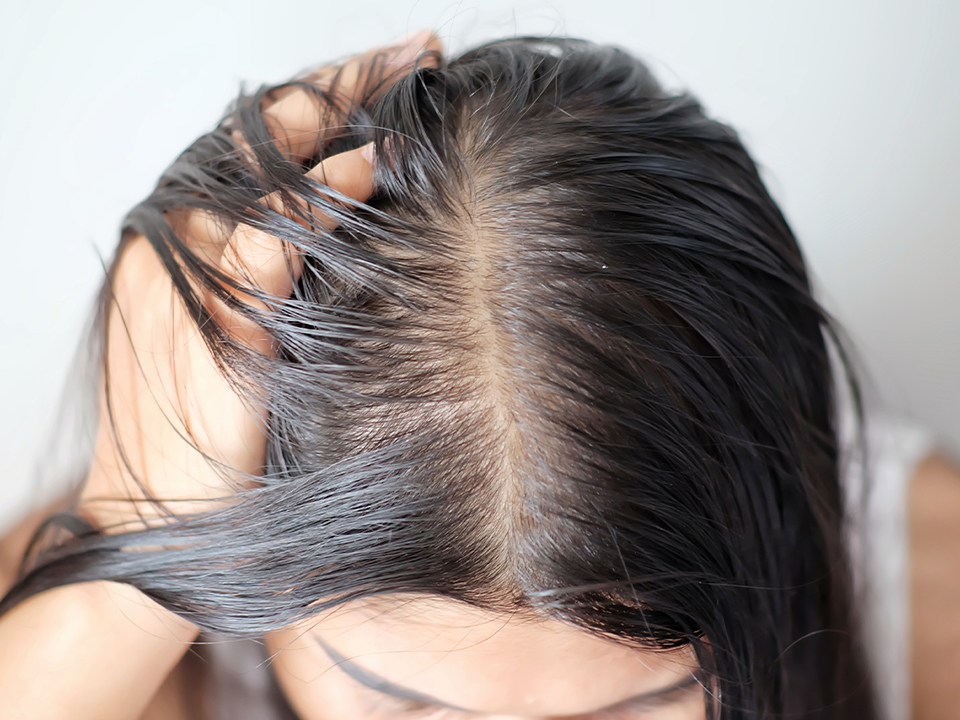Christoffels is open and taking appropriate actions to ensure customer and staff safety
Christoffels is open and taking appropriate actions to ensure customer and staff safety

Hair loss can be a frustrating and stressful experience for anyone. It can happen for a variety of reasons, including genetics, stress, and medical conditions. One such medical condition is Lichen Planopilaris, also known as LPP. In this article, we will explore the relationship between Lichen Planopilaris and hair loss, including its symptoms, causes, diagnosis, and treatment options.
Lichen Planopilaris is a rare inflammatory condition that affects the hair follicles on the scalp. It is a form of lichen planus, a skin condition that typically affects the skin on the arms, legs, and trunk. LPP can occur in anyone, but it is most common in middle-aged women. The cause of Lichen Planopilaris is not well understood, but it is believed to be an autoimmune disorder, where the body’s immune system attacks the hair follicles.
The symptoms of Lichen Planopilaris can vary from person to person, but they typically include redness, itching, and burning of the scalp. Hair loss is also a common symptom, and it can occur in patches or all over the scalp. The hair loss may be gradual or sudden, and it can result in permanent baldness if left untreated.
The symptoms of Lichen Planopilaris can be similar to other hair loss conditions, which can make it difficult to diagnose. In addition to the redness, itching, and burning of the scalp, other symptoms may include scaling, follicular plugging, and scarring. These symptoms can lead to hair loss, which can be patchy or diffuse.
The cause of Lichen Planopilaris is not well understood, but it is believed to be an autoimmune disorder. This means that the body’s immune system mistakenly attacks the hair follicles, causing inflammation and damage. The exact cause of the autoimmune response is not known, but it may be triggered by a viral or bacterial infection, a medication, or other environmental factors.
Lichen Planopilaris affects hair growth by damaging the hair follicles on the scalp. The inflammation caused by the autoimmune response can destroy the hair follicles, leading to hair loss. The damage to the hair follicles can also cause scarring, which can prevent new hair from growing.
Hair loss due to Lichen Planopilaris can be patchy or diffuse. In some cases, the hair loss may be temporary, and hair may regrow once the inflammation subsides. However, in other cases, the hair loss may be permanent, and baldness may result.
Diagnosing Lichen Planopilaris can be challenging because it shares symptoms with other hair loss conditions. To diagnose LPP, a dermatologist will typically perform a scalp biopsy, which involves taking a small sample of skin and hair follicles from the scalp. The biopsy can help to confirm the diagnosis and determine the extent of the inflammation and scarring.
Other tests, such as blood tests and imaging studies, may also be performed to rule out other conditions that can cause hair loss.
There is no cure for Lichen Planopilaris, but there are treatment options that can help to manage the symptoms and slow the progression of the disease. The treatment options for LPP include medications, topical agents, and natural remedies.
According to the National Institutes of Health, medications that may be used to treat Lichen Planopilaris include corticosteroids, which can reduce inflammation, and immunosuppressive drugs, which can suppress the immune system. These medications can be taken orally or applied topically to the scalp.
Topical agents that may be used to treat Lichen Planopilaris include minoxidil, which can stimulate hair growth, and topical corticosteroids, which can reduce inflammation.
Natural remedies that may be used to manage the symptoms of Lichen Planopilaris include aloe vera, which can soothe the scalp, and tea tree oil, which can reduce inflammation and itching.
Hair loss can be a difficult and emotional experience, and coping with hair loss due to Lichen Planopilaris can be challenging. It is important to seek support from family, friends, and healthcare professionals. There are also support groups and online forums where individuals with Lichen Planopilaris can connect with others who are going through a similar experience.
In addition to seeking support, there are also practical steps that can be taken to cope with hair loss. For women, these can include beautiful, natural human hair wigs or hairpieces, using scarves or hats to cover the scalp, and experimenting with different hairstyles and haircuts. For men, custom men’s hair replacement systems offer amazing natural looking results.
There is no known way to prevent Lichen Planopilaris from occurring, but there are steps that can be taken to reduce the risk of hair loss. These include practicing good scalp hygiene, avoiding harsh chemicals and hair treatments, and managing stress levels.
It is also important to seek prompt medical attention if any symptoms of Lichen Planopilaris are present, as early diagnosis and treatment can help to slow the progression of the disease and prevent further hair loss.
A: No, Lichen Planopilaris is not contagious. It is an autoimmune disorder that is caused by an abnormal immune response.
A: There is no cure for Lichen Planopilaris, but there are treatment options that can help to manage the symptoms and slow the progression of the disease.
A: In some cases, hair may regrow after Lichen Planopilaris once the inflammation subsides. However, in other cases, the hair loss may be permanent.
Lichen Planopilaris is a rare inflammatory condition that can cause hair loss on the scalp. It is believed to be an autoimmune disorder, where the body’s immune system mistakenly attacks the hair follicles. The symptoms of Lichen Planopilaris can be similar to other hair loss conditions, which can make it difficult to diagnose.
There is no cure for Lichen Planopilaris, but there are treatment options that can help to manage the symptoms and slow the progression of the disease. It is important to seek prompt medical attention if any symptoms of Lichen Planopilaris are present, as early diagnosis and treatment can help to prevent further hair loss. Coping with hair loss due to Lichen Planopilaris can be challenging, but with support and practical steps, it is possible to manage the emotional and practical aspects of hair loss.
If you are experiencing the devastating effects of hair loss and would like to learn more about non-surgical hair replacement for men or custom hair replacement solutions for women available to you, we invite you to consider scheduling a private, confidential consultation with a hair restoration specialist.
Blog courtesy of Transitions Hair Loss Centers.

It’s time to feel good about your hair again.
3300 East 26th Street | Sioux Falls, SD 57103